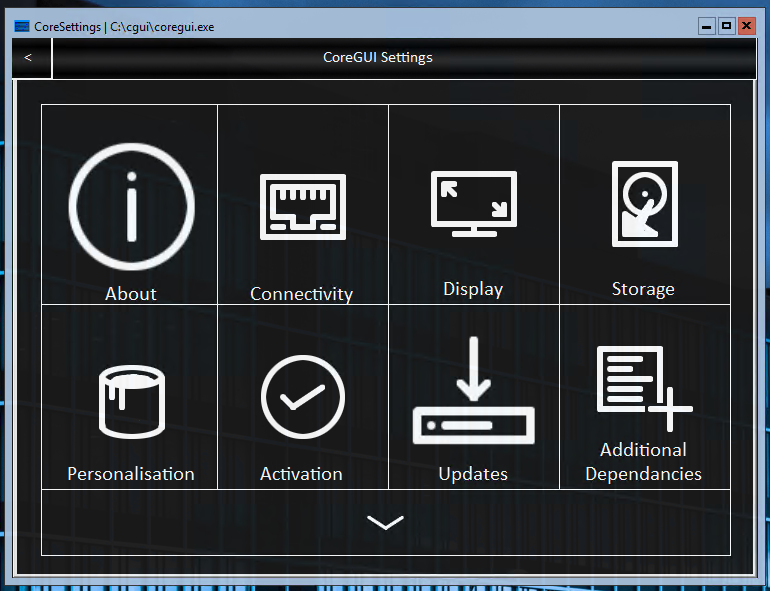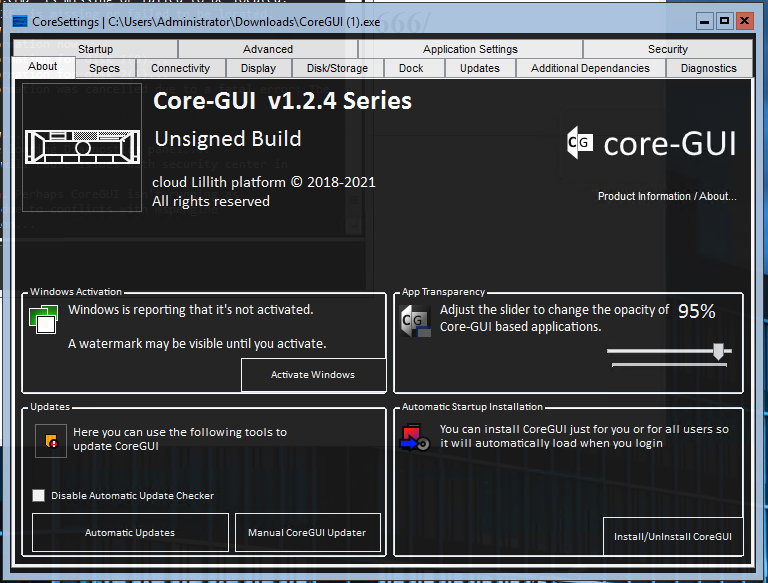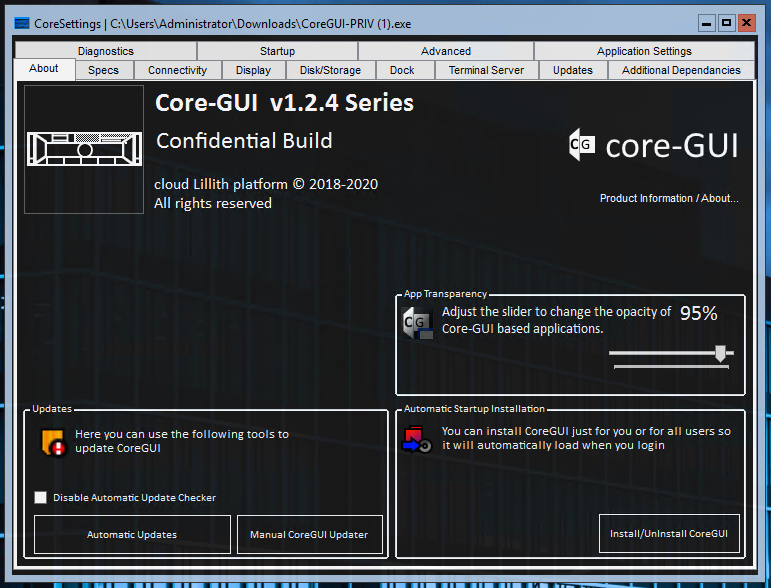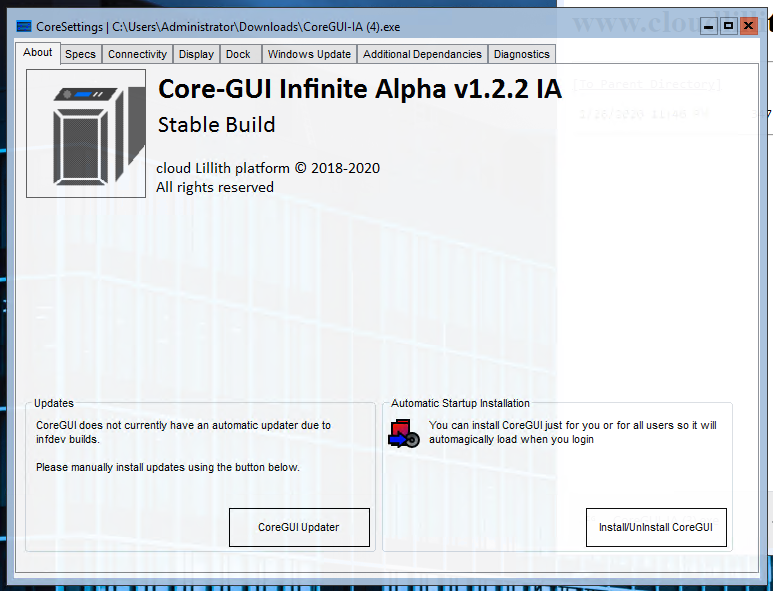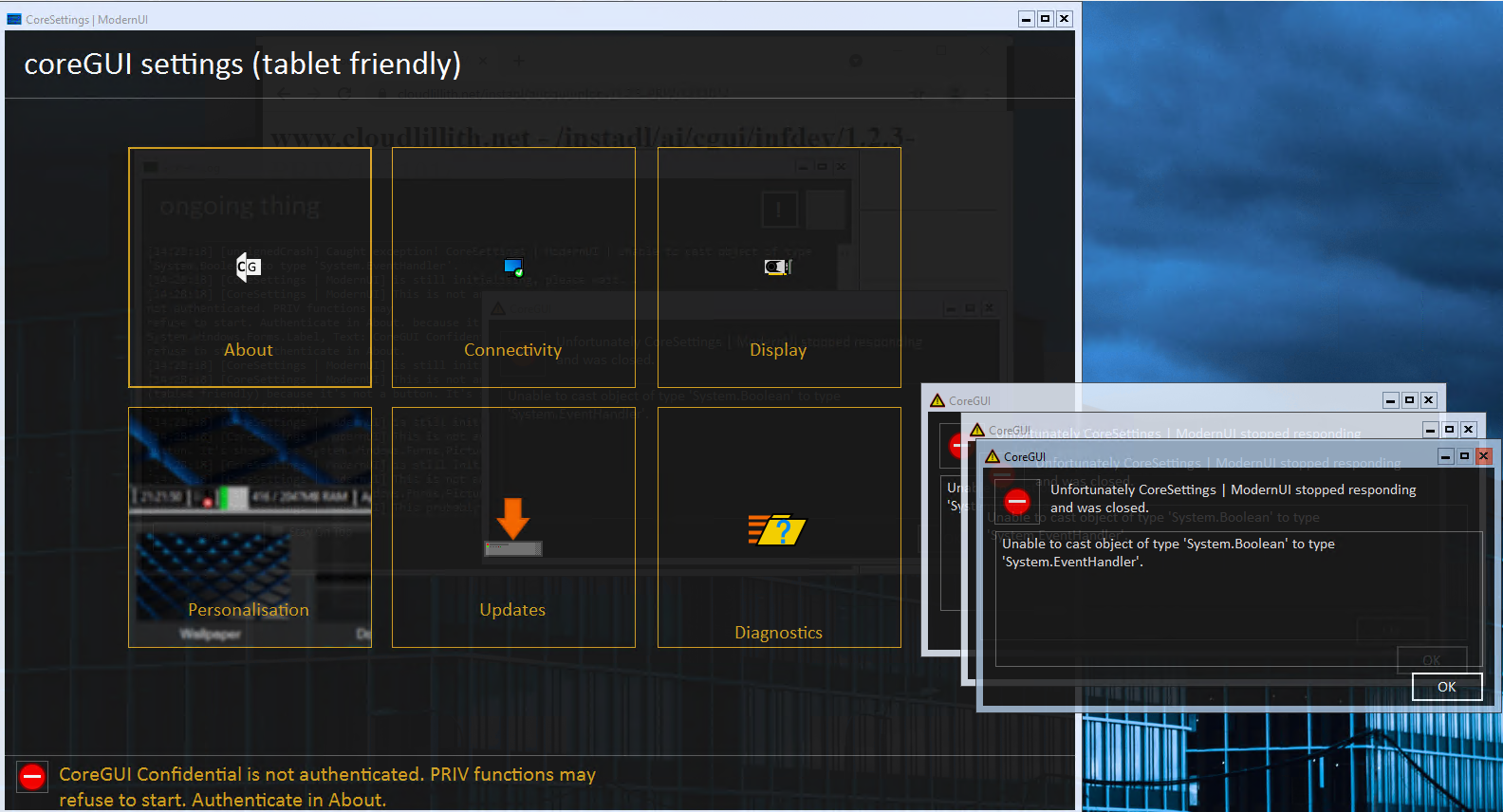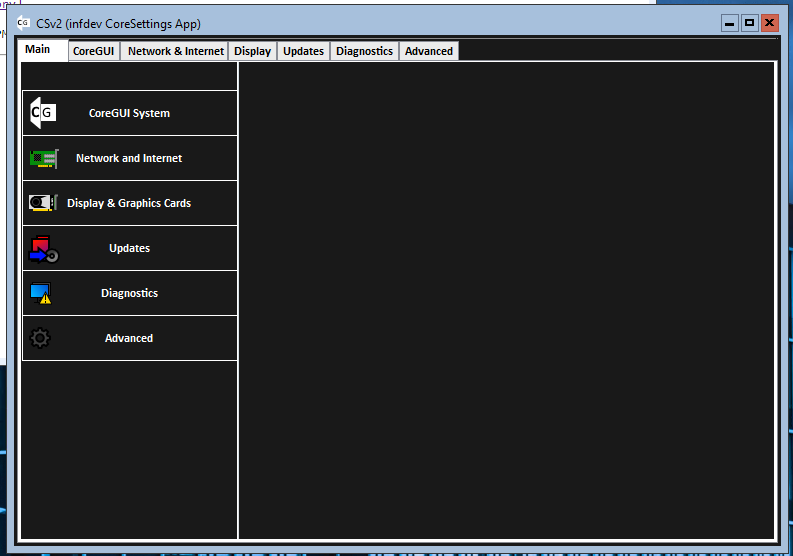Difference between revisions of "CoreSettings"
| Line 34: | Line 34: | ||
As of CoreGUI V1.2.4, the main page for CoreSettings is no longer the About page and instead uses the QuickMenu, which gives a brief overview of all of the tabs with an option for Advanced Settings at the bottom to restore the older Tab Select. | As of CoreGUI V1.2.4, the main page for CoreSettings is no longer the About page and instead uses the QuickMenu, which gives a brief overview of all of the tabs with an option for Advanced Settings at the bottom to restore the older Tab Select. | ||
[[File:CoreSettingsIA.png|thumb|alt=CoreSettings V1.2.2-IA White Theme|CoreSettings V1.2.2-IA White Theme]] | |||
== Scrapped Versions and Features == | == Scrapped Versions and Features == | ||
| Line 49: | Line 42: | ||
* CoreSettings used to include a page for enabling/disabling RDP, with references to [[cbIPfRDP]] | * CoreSettings used to include a page for enabling/disabling RDP, with references to [[cbIPfRDP]] | ||
* References to the scrapped [[FTS]] / First Time Setup guide can be found in CoreSettings V1.2.3 | * References to the scrapped [[FTS]] / First Time Setup guide can be found in CoreSettings V1.2.3 | ||
== Trivia == | |||
* CoreGUI V1.2.2-IA was the only version to contain a light/white theme of CoreSettings. | |||
Revision as of 17:10, 8 August 2021
CoreSettings is the primary control panel of CoreGUI for controlling CoreGUI and the host system settings.
CoreSettings is split into tabs, and since 1.2.4, now has a new main user interface with the option of restorin the tabbed menus.
The following pages are available:
- Main Menu
- Main Menu 2
- About
- System Specifications
- Connectivity
- Display
- Disks and Storage
- Dock & Personalisation
- Windows Activation
- Updates
- Additional Dependancies
- Startup
- Advanced
- Security
- Drivers
Clicking on a tab above will take you to the relevant page for it.
Modes
CoreSettings can be launched in two different modes, standard and Multithreaded.
Multithreaded mode is useful on older, slower systems so that you can launch and use CoreSettings without slowing down the rest of the CoreGUI Environment. This is especially useful when checking for updates.
Revisions
Since the beginning of CoreGUI (1.0.0), The settings application was very basic and incomplete. This has since been overhauled multiple times, however elements of CoreGUI's 1.0.0 Menu still exist to this date, such as the arrangement of the Display Settings Page.
As of CoreGUI V1.2.4, the main page for CoreSettings is no longer the About page and instead uses the QuickMenu, which gives a brief overview of all of the tabs with an option for Advanced Settings at the bottom to restore the older Tab Select.
Scrapped Versions and Features
- Before the quick menu was created, CoreGUI V1.2.4 (non-arm, non-enterprise) on build 123367 included an experimental 'Modern CoreSettings for Tablets'. Launching this would trigger 3 AppCrash notifications, and the interface would be unusable.
- CoreGUI V1.2.4 Build 123532 has an app listed under CoreGUI Developer for CoreSettings V2. This has never been finished and was scrapped from newer releases.
- CoreSettings used to include a page for enabling/disabling RDP, with references to cbIPfRDP
- References to the scrapped FTS / First Time Setup guide can be found in CoreSettings V1.2.3
Trivia
- CoreGUI V1.2.2-IA was the only version to contain a light/white theme of CoreSettings.
